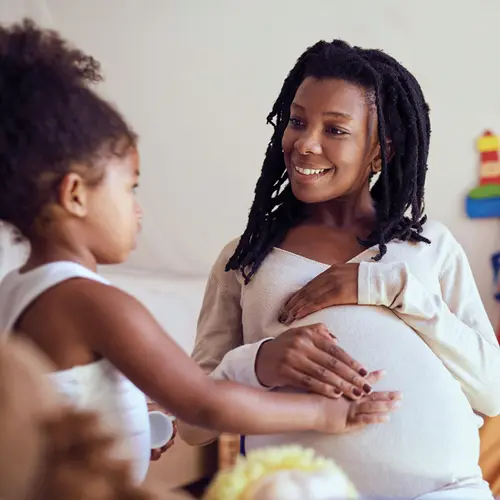NeCara McClendon was 19 weeks pregnant and home on a Tuesday evening after work in August of 2022 when she started to bleed – heavily.
At the nearest ER in Fredericksburg, VA, where she lives, medical personnel told her that her cervix was opening. Her baby and the amniotic sac were moving into the birthing canal too early.
One doctor told her there was no hope, a second doctor said she needed an expert consult, and a third doctor via telehealth recommended a transfer and a technique in which the mother is tilted head down in a hospital bed to try and avoid miscarriage.
The mixed messages were disheartening, Mclendon said. “It felt like they kept giving me a little hope and then taking it away.”
After the transfer, McClendon found out that the new hospital didn’t offer the tilt treatment. Instead, they gave her medicine and told her to wait. And she did – for 3 days – before an ultrasound showed her son’s legs in the birth canal.
The doctor said there was nothing that could be done. McClendon delivered her son the next morning at 19 weeks and 5 days, too young to survive outside her womb.
"The days afterward were nonstop crying – asking [myself] why did this happen to me. I started to feel like a failure."
Why It Happens
Miscarriage is more common than many people think. It happens in about 1 in 4 pregnancies, usually in the first trimester. It’s often not clear why it happens.
Still, some things raise the risk of miscarriage. Weight is one of them and McClendon is slightly overweight. She also has polycystic ovarian syndrome (PCOS), which means her ovaries produce too many male sex hormones called androgens. PCOS can raise the risk of an early miscarriage in the first 3 months of pregnancy. (McClendon didn’t lose her son until almost the fifth month.)
But there is another factor: McClendon is Black.
In the United States, Black women are 43% more likely than white women to have a miscarriage, according to a 2021 study that looked at more than half a million U.S. women. (A Black mother is also more likely than a white mother to lose her baby after 20 weeks or in delivery (stillbirth), or to lose her life, according to the CDC.)
“The scandal is we really don’t know [why],” said the study's lead author, Siobhan Quenby, MD. “We desperately need more research. It’s not acceptable in 2022 not to know.”
Doctors do know that health risk factors for miscarriage like diabetes, obesity, and high blood pressure are more common in Black women than white women.
But again, the question is why? Factors include differences in biology, society, culture, lifestyle, and medical care, among others. And these can be quite hard to separate out, according to experts.
Other lesser-studied biological factors may also play a part. For example, fibroids – muscular tumors that grow on the wall of the uterus -- can sometimes cause miscarriage. Almost 25% of Black women aged 18 to 30 have them, compared to 6% of white women. Black women are also two to three times more likely to have recurring fibroids or complications, which could add to the problem.
The difference in vaginal microbiota between Black and white women may be involved since the vaginal microbiome has been linked to recurrent miscarriage.
But it’s discrepancies in access and use of medical care that could make the biggest difference, said Ana Langer, MD, director of the Women’s Health Initiative at Harvard’s T.H. Chan School of Public Health.
Black women are less likely to seek adequate prenatal care for any number of reasons, Langer said. These may include lack of insurance, lack of financial and educational resources, lack of nearby health facilities, fear of mistreatment, and more. Even the perception of racial discrimination in society at large can delay prenatal care, according to some research.
After the Miscarriage
Since August, McClendon and her partner have been trying to find an in-person grief counselor they could see as a couple. But so far, they’ve had no luck. So they’ve been making their way on their own – with some success. “I won’t say it gets better, but you handle it better,” she said.
The grief comes in waves, she says. Some days they’re OK and other days the pain unexpectedly resurges. The approach of the baby’s due date has been particularly hard.
“This past Saturday was supposed to be the date of my baby shower,” McClendon said. A day intended to celebrate McClendon and her future son turned into a day to remember what she had lost. It was a tough day. But she made it through. “It started off sad, but it eventually turned OK,” she said.


